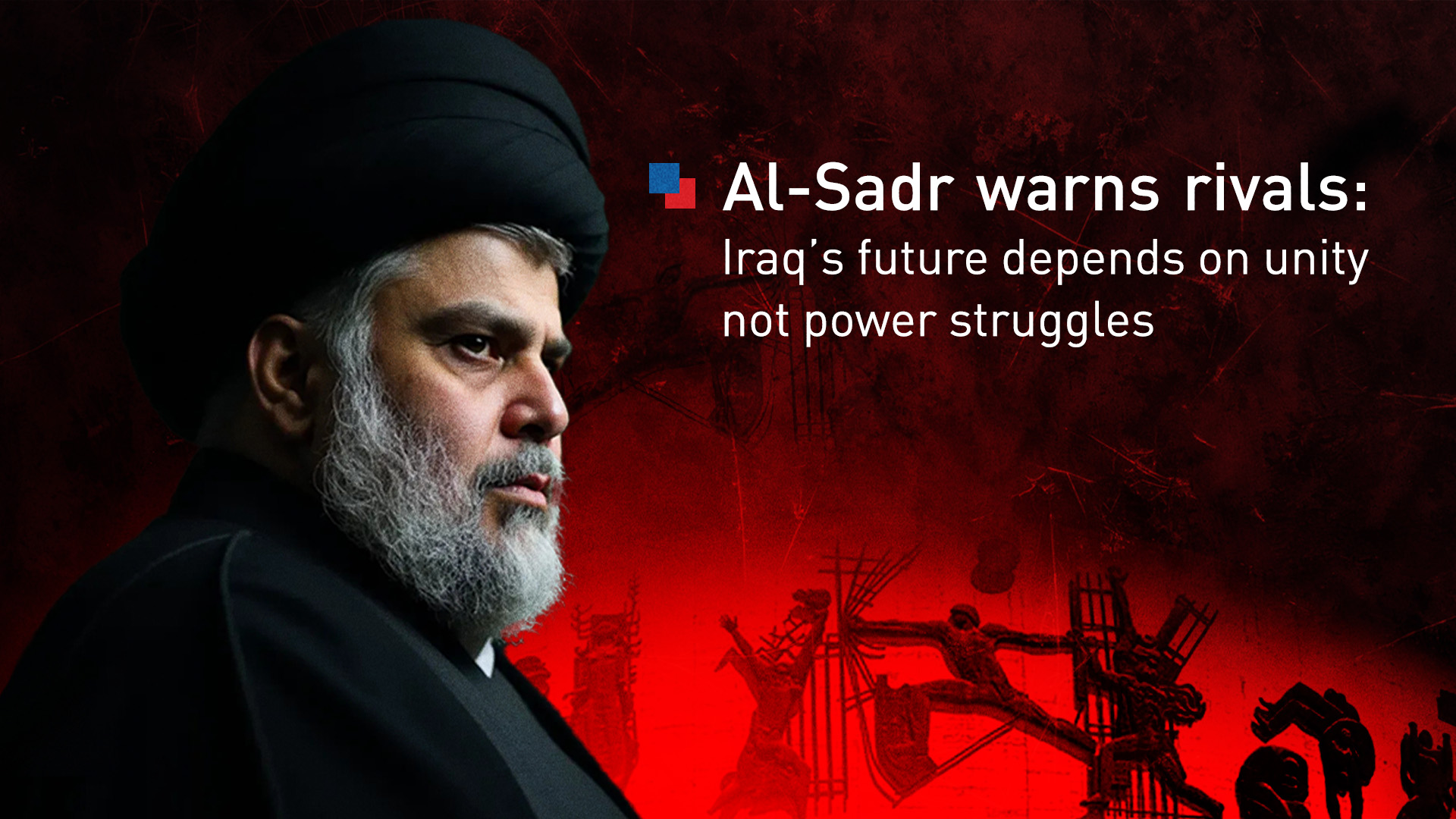Al-Sadr Rejects Assassination Claims, Warns of Political Escalation Ahead of Elections
“If you want escalation, you know we are ready for it — your threats will not frighten us,” the leader said, urging rivals to abandon “trivialities” and take seriously the array of challenges confronting Iraq.

ERBIL (Kurdistan24) — Influential Shiite cleric and leader of the National Shiite Movement, Muqtada al-Sadr, on Monday dismissed reports of an assassination attempt and fired a broadside at political rivals he accused of fomenting fear and instability ahead of Iraq’s upcoming elections, warning that the country faces mounting internal and external dangers if politicians persist in pursuing power games over national priorities.
In a statement circulated to Iraqi media, the leader rejected rumors that his movement planned to block polling stations or inflame unrest to derail the vote — charges he described as baseless projections by opponents anxious about the ballot outcome.
He said such accusations reflected the fears of those “whose presence is more important to them than the democratic process,” and predicted that as election day approaches, the supporters of power and patronage would step up efforts to unsettle the political environment.
“If you want escalation, you know we are ready for it — your threats will not frighten us,” the leader said, urging rivals to abandon “trivialities” and take seriously the array of challenges confronting Iraq.
He accused some political actors of seeking to mobilize mass protests or exploit their popular bases to pressure the electoral process, but also insisted his movement would not be intimidated into abandoning its principles.
The remarks come against a tense backdrop of political jockeying across Baghdad and Iraq’s provinces, where contestation over seats, alliances, and control of state resources frequently spills into public demonstrations.
The leader warned that those who peddle alarmist scenarios were likely to see their own disputes intensify after results are announced, and appealed to voters to follow the guidance of their religious and community elders rather than “repeat experiments.”
Calls to Focus on National Crises
Beyond the immediate electoral clash, the leader used the address to highlight long-standing governance failures and security concerns. He urged politicians to prioritize an array of pressing problems — from drought, pollution, and chronic electricity shortages to a struggling education sector, a faltering economy, overstretched health services, and porous borders.
He cautioned that the proliferation of weapons among tribes and armed militias, plus militia headquarters in neighborhoods across the country, posed a daily threat to Iraqi lives.
The statement singled out the Popular Mobilization Forces (PMF) (al-Hashd al-Shaabi), noting that politicians had previously failed to legislate or properly regulate the powerful paramilitary network, a decision he said had left the country exposed.
“Whoever relinquishes the benefit of the ‘sacred’ PMF will forfeit other sanctities as well,” he warned, framing the breakdown in state authority as both a security and moral crisis.
The Political Dimension
The National Shiite Movement — one of several Shia political movements that have shaped Iraq’s post-2003 political landscape — is vying for influence in an environment marked by fragmentation, protest fatigue, and voter skepticism.
Iraq’s elections this year follow years of mass anti-governmental protests, economic strain, frequent power outages, and disputes over reconstruction and corruption.
Political blocs have repeatedly accused one another of seeking to manipulate the vote or undermine turnout, heightening concerns that the electoral period could be marred by unrest.
Observers believe the convergence of electoral competition with simmering security challenges — including the presence of armed groups, attacks along border regions, and regional tensions — increases the risk that political disputes could spill into violence or further erode public trust in institutions.
A Warning to Rivals — and a Call to Unity
In his address, the Shiite cleric urged political rivals to set aside “nonsense” and work together to confront the threats facing Iraqis. He argued that escalation and partisan posturing would only compound problems such as unemployment, the spread of radical ideas, public health crises, and moral decay.
“If you claim your power is for Iraq and its people, then act like it,” he said, calling for a politics that places national survival above contest for chairs and spoils.
The speech reflects genuine concern over the fragility of Iraq’s security and institutions, while critics see it as a tactical effort to influence public perception amid election competition.
With days remaining before the polls, Iraqis face a pivotal moment: whether electoral politics will offer a route toward reform and stability, or deepen rivalries at a time when the country needs concerted leadership to tackle its deep-rooted crises.